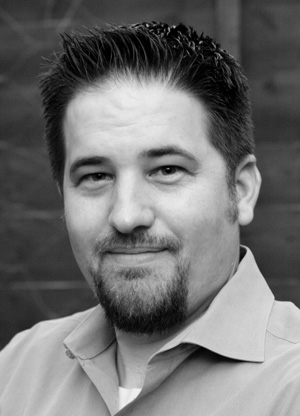Based at Nottingham University in the UK, Jason Camp’s research group focuses on developing mild, sustainable and environmentally friendly synthetic methods for forming added-value compounds from simple starting materials. Specifically, the group are interested in multifaceted catalysis, which is the ability of one metal to catalyse multiple unique processes in a reaction sequence.
Why not read Jason Camp’s latest ChemComm publication on ‘Gold-Catalysed Rearrangement of O-Vinyl Oximes for the Synthesis of Highly Substituted Pyrroles’? It will be free to access until the 14th February, 2011.
| Jason took some time out from his research to answer some questions for us… What initially inspired you to become a scientist? I grew up in a family of construction workers and was therefore constantly building (and destroying) things, from Lego to Lincoln Logs to forts in the backyard.This concept of building and creating things carried over into my studies at university and really crystallised during my undergraduate research projects at the University of Adelaide and the University of California, Davis. For me, the fascinating thing about being a synthetic chemist is the ability, on a frequent basis, to make something that no one else has ever made or develop a better way to make an important compound. It is the challenge of taking what is known in the literature and building upon it to create something that enticed me into becoming a scientist. |
|
Why did you choose ChemComm to publish your work?
ChemComm was selected due to its high impact factor, broad readership and rapid turnaround time. |
|
What was your motivation behind the work described in you ChemComm article?
The driving philosophy behind this research is the idea that one metal can catalyse multiple steps in a synthetic sequence, multifaceted catalysis. This research seeks to get the most out of the catalytic system, whilst limiting the overall cost in terms of time, waste and expense. |
|
Where do you see your research heading next?
|
|
What do you enjoy doing in your spare time?
Spending time with my family and friends, hiking/biking and travelling the world. |
|
If you could not be a scientist, but could be anything else, what would you be?
Travel writer / photographer |
If you would like to find out more about Jason and his research, then please visit the Camp Research Group website for further information.











